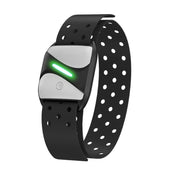A treadmill is definitely a good idea when you want to run or walk indoors whenever you want and create a fitness program that fits your schedule. It's great for improving endurance, burning calories and reducing body fat. But those aren't the only things it can do. If you use it regularly, you may notice that many of your muscles are getting stronger and more toned. Our entire body is made up of a variety of muscles, each with its own purpose. Some people may wonder which muscles can be affected by running machine exercise. Here then, we will introduce you in detail what specific muscles you exercised during walking and running.
Quadriceps
People who walk and jog regularly on the treadmill will gain endurance and strength in their quadriceps. They do most of the work in walking and running. The quadriceps is a group of four muscles in the anterior and lateral thighs. They are the rectus femoris, lateralis femoris, medialis femoris and middle femoris. When you land on your foot while running or walking, these muscles in your leg decelerate and absorb the impact of the foot strike. If you want to get more exercise effects for quadriceps, it is a good way to adjust the gradient of running exercise machine or walk backwards.
Hamstrings
Often, when people start running on a fitness treadmill, they feel significant levels of hamstring pain. They feel tired especially when they are on an incline. The hamstrings consist of the biceps femoris, semitendinosus and semimembranosus muscles and are located between the buttocks and the back of the knee at the back of the thigh. They are responsible for hip extension, which is the main function of running. When you are at the highest point of your run, the hamstrings bend your knee and pull you up until you reach the lowest point of your run, then they stretch your hips. Exercising them regularly will increase your running endurance and make your workouts effective and enjoyable. If you work out regularly, you won't feel hamstring pain because these muscles will gain endurance and become strong and sturdy.
Glutes
When you walk on a slope on a treadmill, the direct focus and impact is placed on your glutes. The gluteus maximus forms the back end of the muscles, just like the leg muscles, that help you walk, jump and run. It is made up of three other muscles, the gluteus maximus, gluteus medius and gluteus minimus. When you perform walking lunges and squats on the running workout machine, you will significantly feel the burn in these three muscles. It is easy to see that by working out on the walking fitness machine, you can easily achieve your goal of a fitter, rounder buttock.
Calves
One of the most important muscle groups used in running workout machine running are the calf muscles. These calf muscles are located at the back of the lower leg. The calf muscles at the back of the calf, including the gastrocnemius and flounder muscles, also work hard during walking or running. This is because the walking machine belt tends to constantly pull you forward and the constant pulling of the belt requires the calves to work continuously. In addition, these muscles act as stabilizers when you walk or run. It is therefore important to stretch them regularly.

Cardiac muscle
The heart is the main part of your body that you work out on the fitness treadmill. Its job is to pump blood to every part of our body. When you run or walk on a running fitness machine, your muscles start to work and become more active. As a result, they need more oxygen to breathe. This oxygen is supplied by the blood that is pumped from the heart. As the demand for more oxygen increases, the blood supply also increases. As the heart works faster, the cardiac muscles get a workout and the pulse rate becomes faster at the same time.
Exercise on the running fitness machine can actively exercise our glutes, hamstrings, quadriceps and calves. It can also maintain core participation and exercise the cardiac muscles of our heart, keep them strong and in good condition, and help to burn calories. Of course, to achieve the goal of exercising or increasing muscle mass, correct techniques, balanced diet and regular exercise are indispensable.


